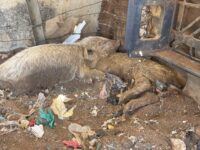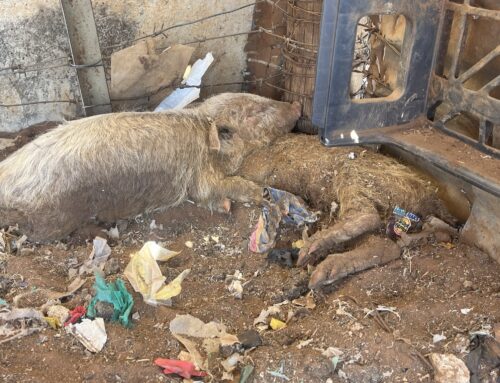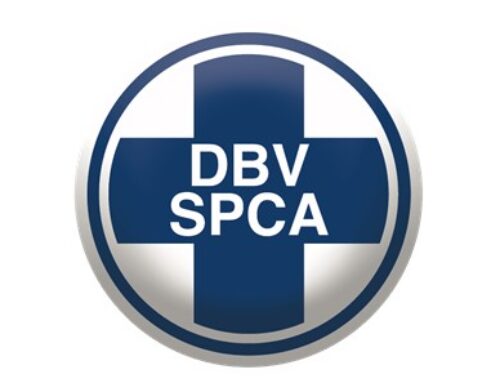Despite a decade of relentless questioning and investigation by the National Council of SPCAs (NSPCA), the red meat industry and the Department of Agriculture remain ambivalent to the welfare concerns of pigs in South African abattoirs.
In 2013, after obtaining a warrant, the NSPCA placed cameras in pits (called “gondolas”) of an abattoir, previously known as “Pork Packers” and currently known as “Molare Meats”, into which pigs are placed for stunning before slaughter. At the time, the abattoir was owned by Tiger Brands and supplied meat to Enterprise Food. The NSPCA obtained disturbing footage from inside the “gondolas”, which showed pigs subjected to CO2 gas stunning exhibiting panic-like symptoms, including high-pitched vocalization and desperate attempts to breathe. This horrific evidence prompted a research project, which led to some improvement in the pit, and which could be argued was only carried out because of the NSPCA’s efforts – especially its demands for academic scrutiny.
A controversial system was being used in the worst possible manner, seemingly because nobody looked inside the pits, which was not visible to handlers.
The study’s findings, released in late December 2024, do not give a clear indication of what action to take to make the method humane, and are a scathing indictment of the industry’s failure to prioritise animal welfare. Initially, the study focused on CO2, but the findings revealed that all other methods to slaughter pigs for are “sub-optimal”. In the year 2025, to simply accept that all methods are “sub-optimal”, the industry and government do not appear to view this dilemma as an urgent matter.
Several international governmental expert committees, such as the European Food Safety Authority (EFSA), have condemned the use of CO2 gas as a stunning method, citing severe welfare concerns, including prolonged loss of consciousness, asphyxia, and extreme respiratory distress. The system is so controversial that the World Organisation for Animal Health has classified it as “under study” for many years, in its extremely weak code that must be adopted by almost every country on earth, including countries that have no welfare legislation at all. Yet, the industry and government have dragged their feet, ignoring the NSPCA’s pleas for research into refinement.
The NSPCA demands immediate action to address the systemic failures in South Africa’s abattoirs. The Department of Agriculture must urgently amend the Regulations in terms of the Meat Safety Act No 40 of 2000 to phase out head-only electrical stunning, to implement automated head to cardiac pre-stunning of pigs and at the very least until refinement occurs, ensure that simple mitigations are put in place.
Consumers hold significant power in driving change, and we urge them to support retailers that prioritise humane practices. By making informed choices and through research, consumers can help create a more compassionate food system.
The NSPCA is opposed to any form of slaughter that does not kill an animal instantaneously or render an animal unconscious and insensible to pain through pre-stunning. We remain resolute in our battle against cruel and unnecessary slaughtering methods and will continue to pursue this matter – no matter how long it takes.
Join our WhatsApp channel for the latest updates on our work and animal welfare news.
If you are as passionate about animals and their well-being as we are, consider supporting our causes by donating.
Latest News Posts
Will You Be the One Who Takes Action?
Most people will scroll past this. But will you be the one who stands up for animals?
Animal welfare isn’t always in the spotlight, but it changes lives – for every neglected, abused, or suffering animal we help. Our teams work tirelessly, often behind the scenes, ensuring animals across South Africa are protected.
This work is relentless. The challenges are immense. But with more hands, hearts, and resources, we can do even more.
The equation is simple: the more supporters we have, the greater our reach, the stronger our impact.
Be part of the change. Become an NSPCA Project Partner today. From just R50 per month, you can help ensure that no animal suffers in silence.








